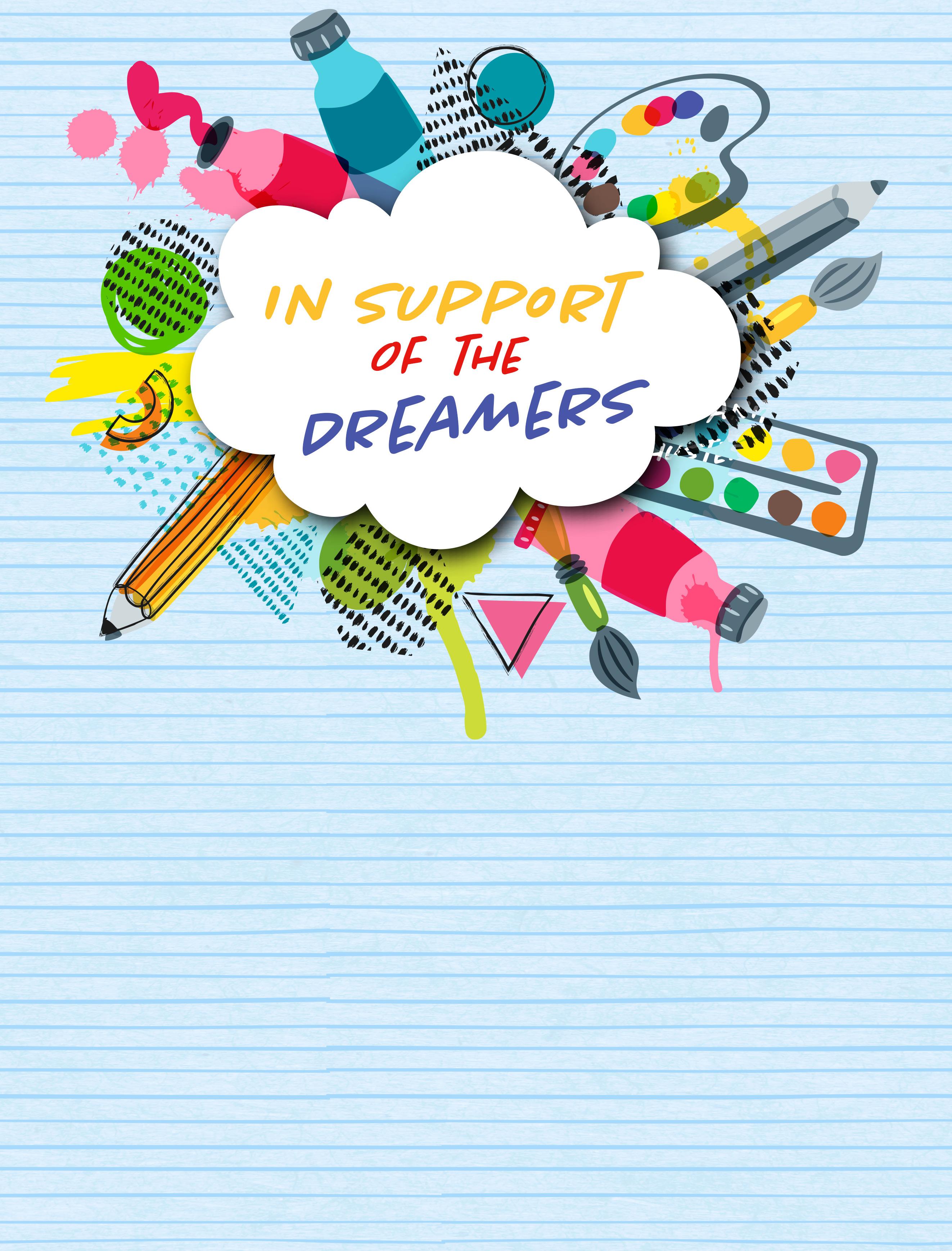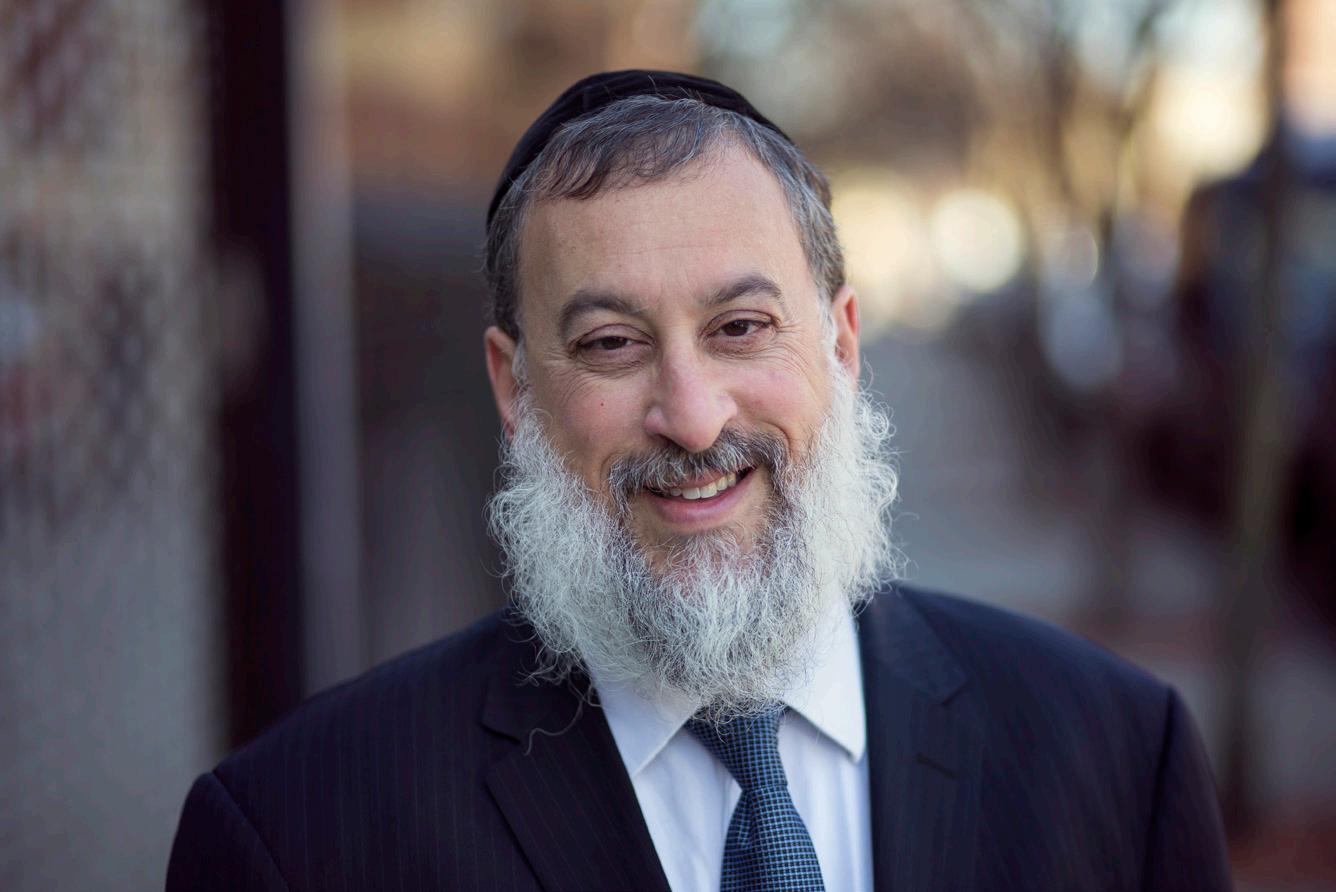
17 minute read
Weekly Features of COLlive.com
WEEKLY
FEATURES ON COLLIVE.COM
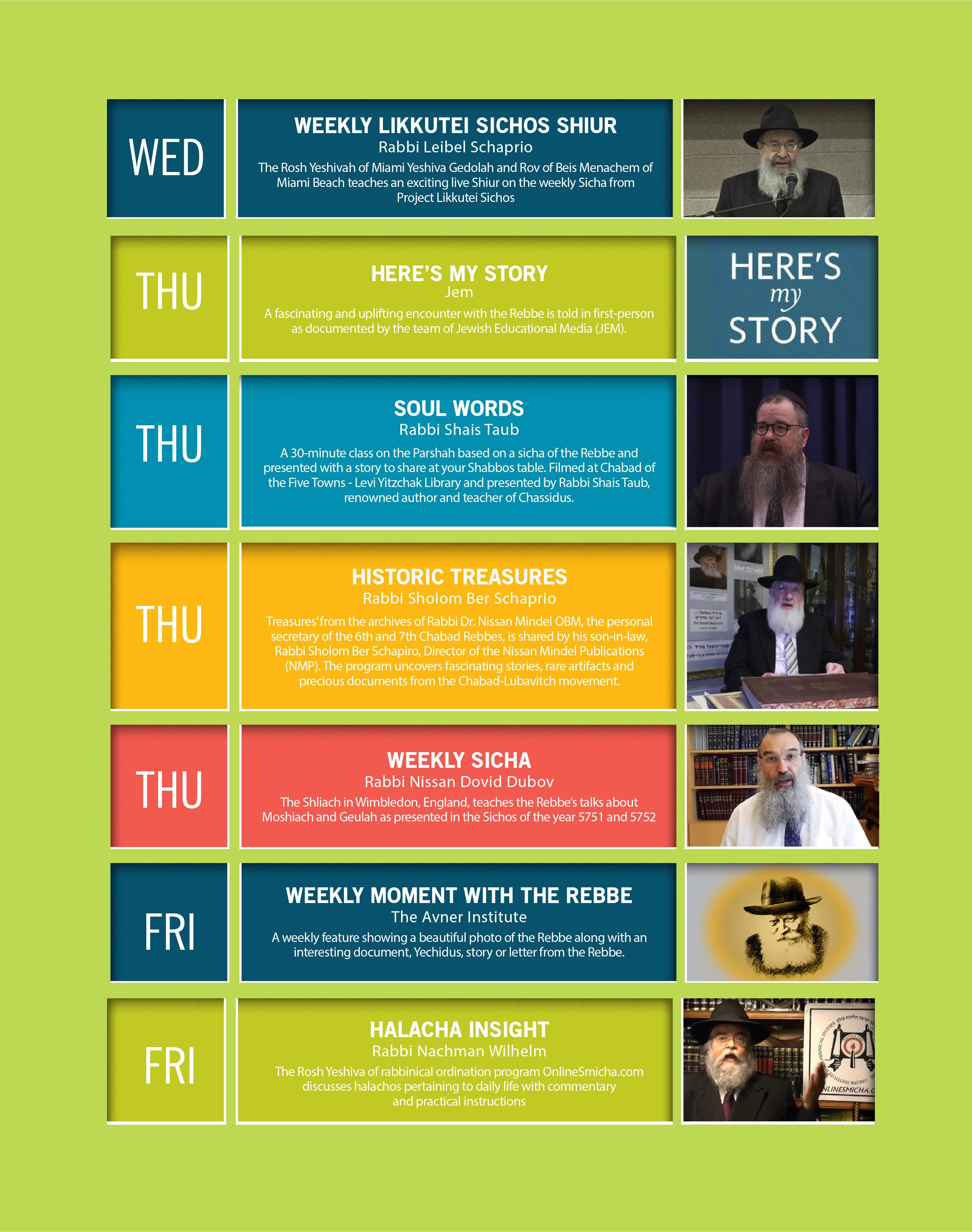
HOME,ON THE
by Danit Schusterman
JOB
In March 2020 (Adar 5780), millions of U.S. office workers hurriedly packed up their desks to set up shop and work from home, thinking that they would be back in the office within a few weeks. As weeks stretched into months of working from home, many businesses have left their brick-and-mortar office spaces and have their employees working from home for now, and some indefinitely. Crown Heights residents Zaki Tamir, Gavin and Yocheved Fehler, Leah Cohen, and Meir Crayk no longer have the 20-60-minute commute to Manhattan, and now work from home. I spoke to them about the challenges, benefits, and overall experience of transitioning from a full workday in the city to their current workdays at home. Yocheved Fehler: I’m a paralegal at a law firm. I definitely miss the routine of being in an office and having in-person communication. And the fact that my dining room table has become my office is not ideal, but it works. Gavin Fehler (husband of Yocheved): I work as a multimedia designer at an app and tech company. Our actual office has been closed down indefinitely so I now share an office space with my wife in our dining room. Honestly, the only thing I miss about working in my office in the city are the free snacks and the fully stocked kitchen. Leah Cohen: I miss the human interaction. As a stenographic court reporter, reporting a deposition on Zoom just isn't the same as sitting at a conference table with the lawyers, the witnesses and the clients. I miss the pleasantries, 'Good morning' and 'How are you?' On Zoom, it is all business.
Zaki Tamir: As a criminal defense lawyer (I also do corporate litigation), I needed to rely heavily on my instincts when deciding to take on a client or not. It is important in my line of work to have in-person communication to be able to judge by the client's look and appearance how they would be received by the jury. Covid took this all away, and I thought that this would present a huge challenge for me. But in fact, my relationships with my clients actually became more meaningful. Meir Crayk: For the past 16 years I have worked in Midtown Manhattan setting up IRS approved pension plans for
”THERE IS SOMETHING TO BE SAID ABOUT BEING IN THE WORK ENVIRONMENT AND AT THE SAME TIME, I GET SO MUCH MORE DONE WORKING FROM HOME.”
small businesses, such as doctors, lawyers, and real estate companies. And I couldn't be happier working from home. Gavin: The freedom is what I appreciate the most about working from home. I can take a break when I need to. I can run out to the store. I have a gym in my building that I only used to go to on weekends but now I go every morning before I start my workday. I never had breakfast before. I now have a real breakfast every morning. It's really great. Leah: I feel like my time is used a lot more wisely now. There were times I’d travel 40 minutes to a deposition and if one person didn’t show up, the entire deposition was canceled. I’d then have to travel home and a good 3 hours of my day was gone, wasted. Now, I log on to Zoom, and if someone doesn't arrive, we just log off and schedule it for another day. No time lost.
Zaki: I used to wake up and put on a suit and tie and head to work. Everyone on my team was there in the office, so anything that needed to get done or addressed would get taken care of. Now, because we are all remote, we absolutely have to have a 9:10 AM morning meeting daily to make sure every person on the team is on the same page and knows what needs to get done. I really miss my corner office overlooking the Hudson River. Being in the office helped put me in the work frame of mind. When I was at work, I was 100% at work, and when I was home, I was 100% at home. I find that working at home, there is no end to the workday or week. I'm working hard trying to find the right balance. Yocheved: On the one hand, I love being home. I now have time to work out, and meet a friend or sister for lunch who lives in the neighborhood, which is something I've never been able to do work in the city. I have a lot more freedom to decide what to do with my personal time. But, on the other hand, being in the office, I had no choice but to only focus on what needed to get done in the office and the same at home. Now, I'll be in the middle of a work meeting and look up only to notice that my kitchen counter needs to be wiped down, and the next thing I know, I'm cleaning my entire kitchen. I'm really working on compartmentalizing and being more organized with my time. Meir: I used to be out of the house for 11 hours a day. I'd see my kids in the morning for a few minutes and come home to most of them already asleep. The only time I had any meals with my family was on Shabbos, and maybe Sunday. I had no idea how much I was missing out on. I really, really enjoy being around my family and being on the scene now. Leah: I enjoy being able to wear my slippers and not heels. I get to make fresh delicious lunches in my own clean kitchen and use my own restroom. These things really add to the quality of daily life! Zaki: I’d spend 10 hours a day at work. I actually had no idea just how cool my kids were. In the past, my relationship with my kids was based on time spent together on Shabbos or on family trips, so there were always logistics involved with this time spent with them. We always have big Shabbos meals with lots of guests in and out of the house. So either there were lots of other people around, like on Shabbos, or it was about making sure we got to our destination on any family outings. And once
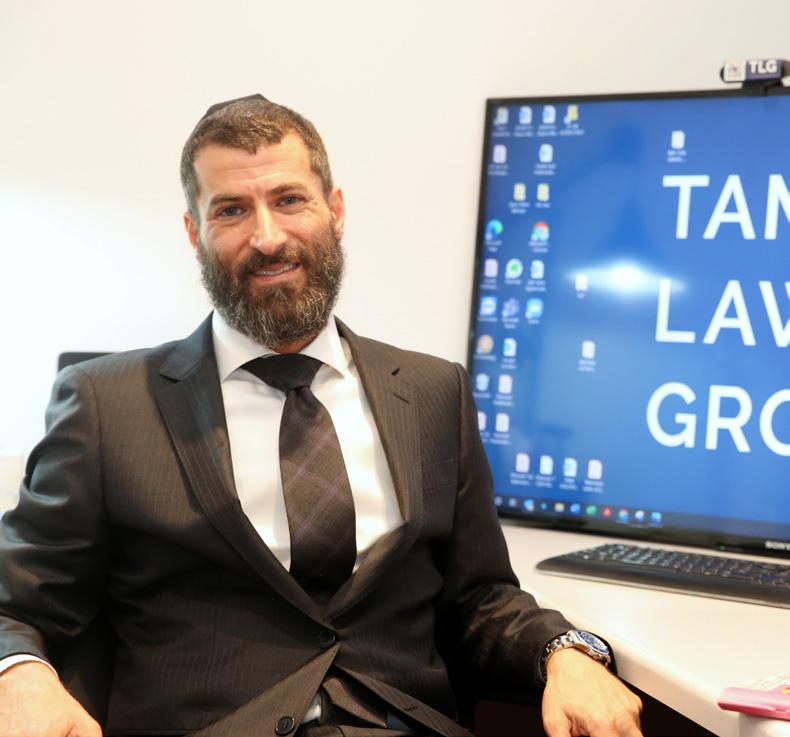
we arrived, it was all about the ‘trip’ and not about them. It was never just ‘being’ together. These past few months, I was able to just be with my kids, with no agenda or specific purpose. I am so thankful for this. I actually know my kids now and it's been really amazing. Gavin: It's interesting because in our case, Yocheved and I now spend our entire day together which could be very challenging for a married couple. But we have learned to work together and give each other space. It
took a while but now we're in a good routine. Yocheved: We definitely spend a lot of time in each other's company but we don't really have quality time together. When we were both working outside the house, we made an effort to go out, just the two of us. Now that we are together all day, it's almost like we have to make double the effort to differentiate between quality versus quantity. Gavin: With Covid and all the restrictions, it's not easy to do that. But we have been creative. Once in a while we order in from one of our favorite restaurants and have a little ‘inhouse’ date once all the kids are asleep. That’s always enjoyable. Leah: In an ideal world, I'd love the ‘new normal’ to be a combination of both worlds, where some days I go in and some days I get to stay home. In my line of work, it is important to see the defendant’s/witness’s/ client’s body language when they speak. So, in-person meetings are very important. But there are many situations
that are perfectly fine to do over Zoom - in my slippers. In my own comfortable home.
Zaki: My ideal goal is to purchase my own office in downtown Brooklyn right next to the courthouse. I'd be close to work and I'd be close to home. Now that I've built up such a meaningful relationship with my kids, I can never, ever go back to how it was. Meir: I never realized how much the commute took its toll on me. Just being on the train with so many people, and so many personalities, I only realize now how it takes its toll on my productivity. Now, I automatically start my day with more energy and less stress. My wife and children really respect my space and know when they can or can't disturb me. I appreciate this very much. Working from home has been great and I wouldn't have it any other way. Yocheved: I'd be happy with a hybrid model. I'd like to go into the office twice a week and work from home the rest of the week. There is something to be
said about being in the work environment and at the same time, I get so much more done working from home. So I'd be happy with doing both. Gavin: As I said, the only thing I miss is the free snacks. And maybe being around likeminded creative people. I appreciated that. But I'll never miss the squishy commute, the constant movement of the city. I wouldn't mind my own home office--that would be great. But for now, I'm really happy with this setup.
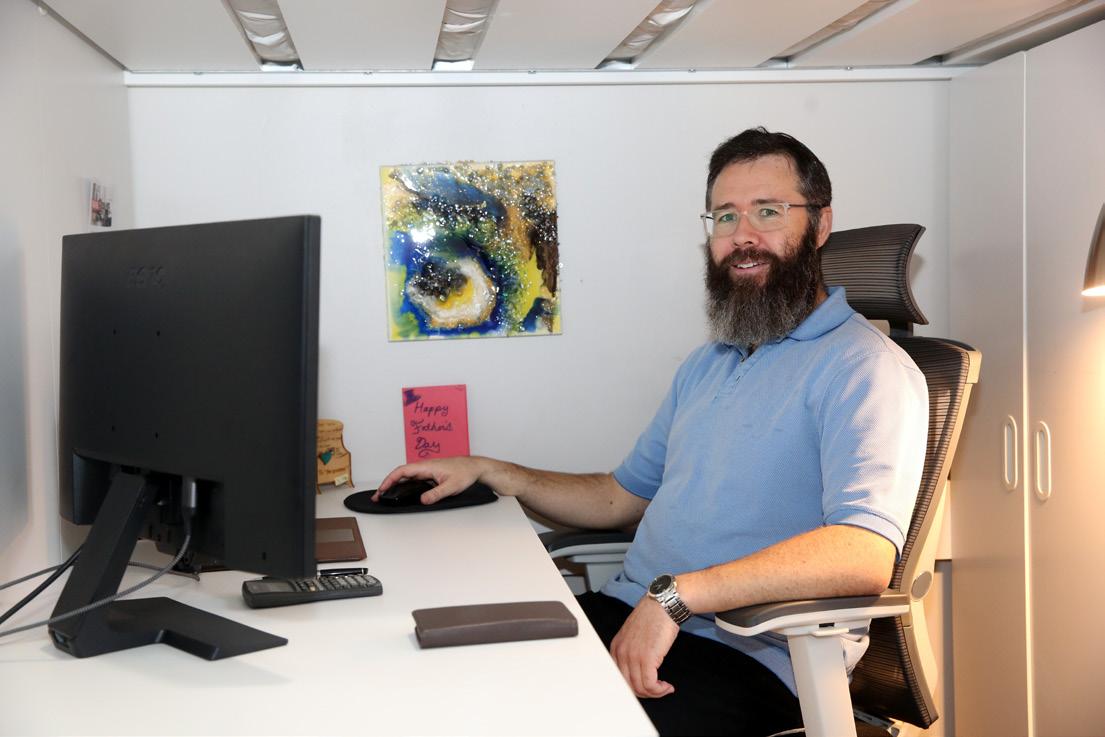
Meir Crayk
WEDDINGS IN A POSTPANDEMIC WORLD
SIMCHAS BECAME SMALLER AND COZIER - AND MUSICIANS ARE LOVING IT EVEN AS THEIR INDUSTRY FACES A NEW REALITY
BY SARA TRAPPLER SPIELMAN
It’s a breezy night in Miami, Florida, and the outdoor chuppah adorned with lights and flowers attracts a nice size crowd, many of whom will not attend the meal later, leaving with a packaged meal to take home instead. Dinner for family and close friends is served inside a large tent that has been transformed into a hall glowing with warm pink lights and candles all around, lively and joyful music filling the makeshift simcha hall. The music has been transported from Crown Heights--Chony Milecki and his band flew in that morning to perform. Following the event, as the flowers from the chandelier-style ornament hanging from the ceiling in the middle of the room are taken down, Milecki sits down to reflect how weddings – and the scene for Jewish musicians - have changed since the pandemic. ”The bulk of Covid weddings were after Sivan, right after Shavuos,” Milecki says. ”It’s always the busiest time for musicians, it’s a bottleneck time because we can’t play during sefirah or summer, it’s always a very full time for us, so Covid decimated us in a certain way. None of us played as much as we would have. Usually, we got three calls a night for Sivan, now we had two or three a week.” There was a silver lining, though, to this changing
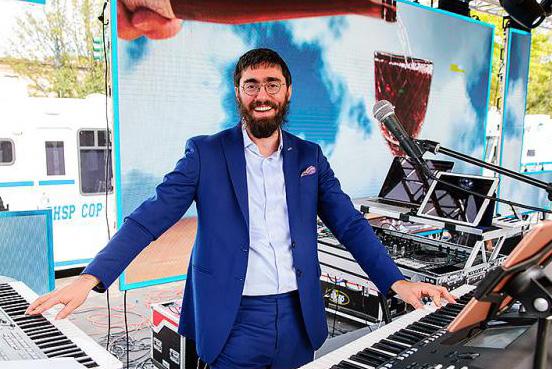
landscape in weddings, which was felt by many, especially musicians whose music sets the stage and excitement for weddings. ”There is something so special about the small intimate weddings where every single guest is so present,” says musician Fitche Benshimon. ”The simcha is palpable, and with these smaller crowds, the guests are very involved. Everyone feels that they are needed there, and they have to participate. These home weddings have been beautiful. The music is great, food is excellent, and guests are happy to be there.
”I give the Chossanim and Kallahs a tremendous amount of respect for going along with these alternate plans when they probably had a very different vision in mind. But every single wedding that I have played at during Corona has been absolutely incredible. Logistics might be harder, but being flexible is key," Benshimon says. Milecki expressed a similar sentiment. ”Playing in [Moshe] Rubashkin’s basement were some of the nicest atmospheres, the most feelings of brotherhood and family that I’ve ever seen. Even families who could afford it, and can do something massive, still had it there and they had a one-man band, even though they would've booked a ten-man band in Oholei Torah.”
In fact, Benshimon feels people should continue to make smaller simchas, pandemic or not. ”It’s less expensive and people enjoy it more that way, while everyone else can watch it online,” he said. When he plays for weddings at smaller locations and in a home environment he finds that people are more present, whereas at larger events so many people attending are on their phones, and wandering outside. At weddings post-Covid, it’s just family there for the majority of the simcha and the hosts are not spending time with so many other guests. ”I get to know the family now during weddings,” Benshimon shared. ”The musician, photographer and caterer are the only ones not family, everyone else are direct family or cousins, so I see people behave as their family dynamics, the way they are with each other when no one else is there. There’s something amazing about that, they don’t have to behave differently because of guests, so the simcha is felt much more.”
Benshimon admits it was appealing to have a lot of people share in their simchas in the past, but often the host is so busy he or she doesn’t have time to greet everyone. ”It’s very overwhelming for anyone, plus the smaller weddings were more affordable, people stayed from beginning to end. There was something very special about them.” When he sees families spending less on weddings he said that he’s ”happy to do his part” and offers discounts for those making smaller weddings. One caveat is that event locations often change now, even on the wedding day. The dates and location changed three times for a wedding he recently did, so he’s prepared that it’s not set in stone, and everything might change. Have weddings returned to normal? Milecki does not think so. ”Most weddings have a hundred to 150 people, it’s much smaller, but people are having a good time, they’re really participating, they’re bringing care, love and affection for the couple and family. People feel because it’s smaller they have a responsibility to be more mesameach the chosson and kallah. Weddings became conveyor belts, night after night you'd see the same band and the same room. I think that Covid brought the small town wedding to Crown Heights.” Milecki has performed at weddings all over the US in recent months, including Kansas, Florida, California and even the Catskills in Upstate New York, with the main difference being
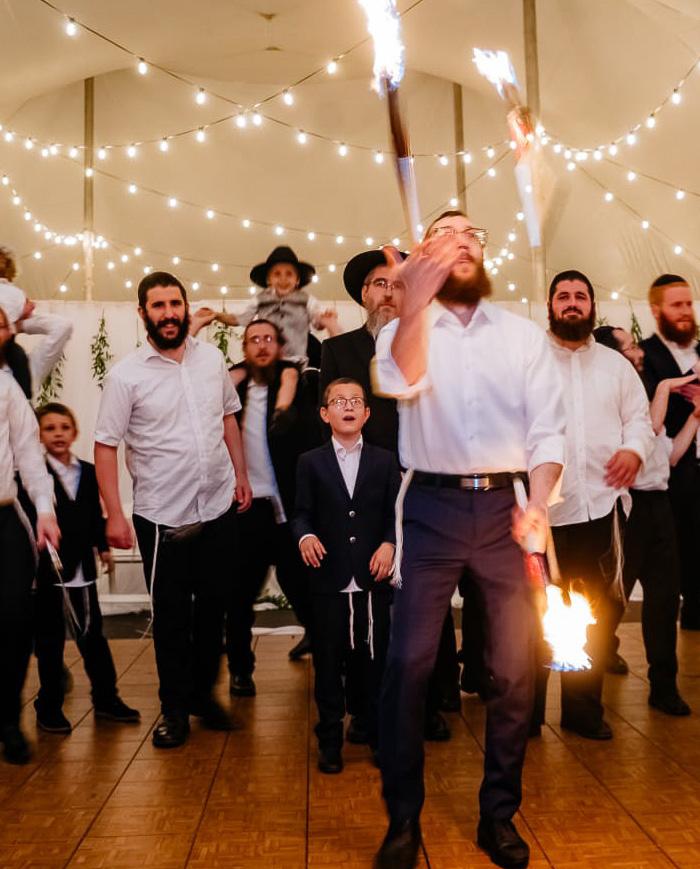
that people outside of the city have more outdoor options, such as tents. Ultimately, Milecki believes weddings will return to 90 percent of what they once were, hopefully without losing the unique quality that they have attained. ”I hope people will make more intimate weddings and put more thought into this aspect when planning their event,” he said. ”To make it more personal and special for people who attend to think: What can I do to not just show up but to really make this day special for the chosson and kallah?” While weddings were still going on, most other events were canceled over the last few months, Benshimon explains, leading to a surge in live-streamed events. ”Along with the Covid lockdowns, live events became the wave of the future, and the livestream industry has been booming,” he says. Drawing on his experience producing his popular online show ”Motzoei Shabbos Live Kumzitz,” Benshimon advised dozens of entertainers and musicians, who asked for help in producing live events. ”All of a sudden I was getting phone calls from musicians and singers all asking the same question, ’how do I go live?’” he says. ”It’s a complicated answer, and my best advice is to find a good streaming crew to do it for you and a studio that you can just walk into.” He cites Flowmotion Studios, led by Yankee Teitelbaum and Bracha Torenheim, that is credited with working on the Hatzalah-thon, Tenathon and the virtual International Kinus Hashluchim.
Concerts have also been transformed as of late. Milecki and Benshimon were both involved in the mother of all concerts, the Hatzalah-thon fundraiser during Lag B’omer, which was likely the largest virtual concert. Milecki said concerts are still happening - just over zoom, including some other concerts he performed at for smaller events and schools. Benshimon agreed that singers are for the most part not performing live, but doing more online concerts, yet he believes they will still return to seeing the fans they enjoy in person. ”Live concerts will be back, because people like to go out to concerts, and singers perform better in front of an audience,” he said. In addition, prices for producers are not cheaper when doing it online, and there’s a lot of work involved too.
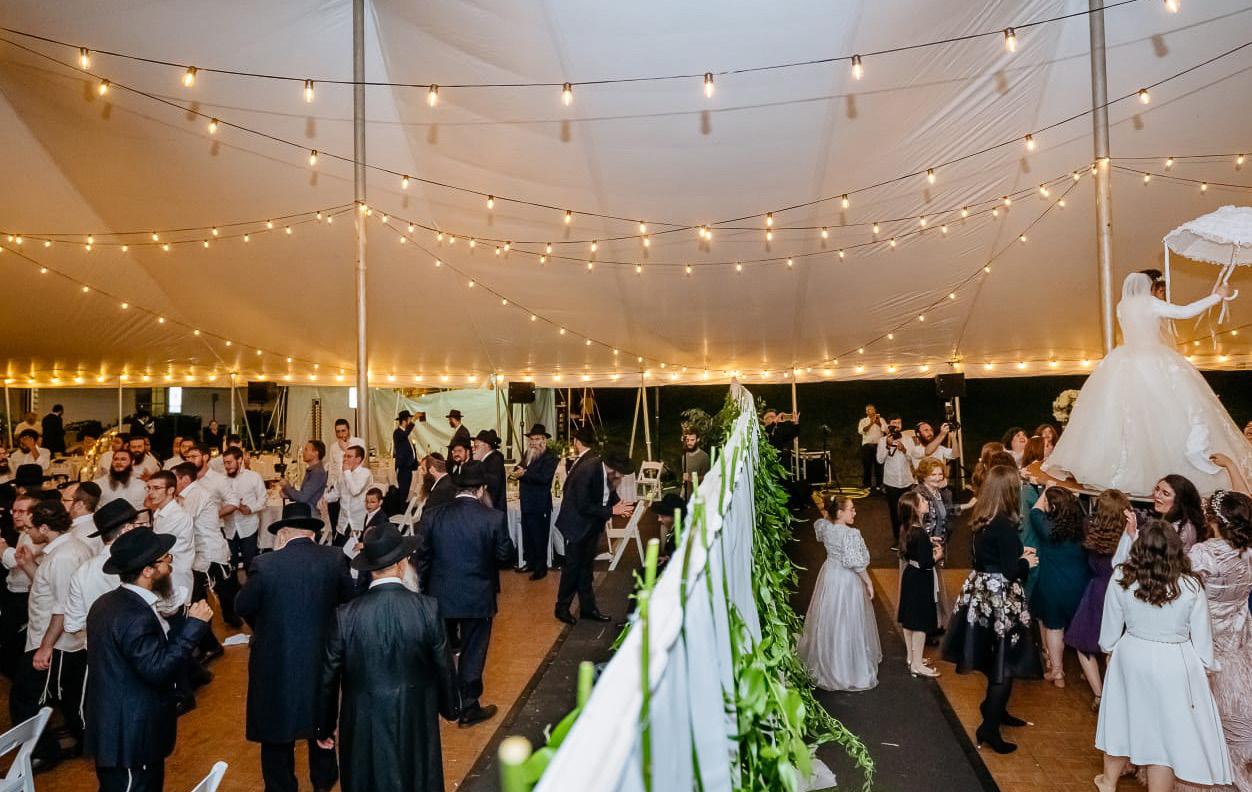
One memorable music experience for him happened on Chol Hamoed Pesach. ”A most incredible thing that I experienced was driving around in a music truck sponsored by United for Protection bringing music to thousands of children in the community, who were at home due to Covid lockdowns,” he says. ”I can’t even describe the feeling. I’ve driven around in music trucks before, but this was an experience that was just incredible and I’m thankful to Hashem for having this joyful opportunity. Blocks and blocks filled with families, fathers, mothers, children, all standing in front of their houses and dancing, waving, smiling…” He also believes that during this era of quarantine there’s too much music coming out too quickly. ”Good songs are not getting the attention they should be getting for long,” Benshimon said. ”Songs expire quickly; they’re in for a month and then out, because the next one is in. There are so many singers, but everyone is making noise so it’s hard to get attention.” Milecki has a recording studio, but lately he hasn’t been taking on clients to record, instead, he has been focusing on his own music. He spent a couple of years working on his album ”the Great Farby,” but during the last few months he completely revamped his own performance music. He’s using his studio time by plowing ahead with wedding sets, accomplishing in the last few months what would usually take at least a year. He makes his own beats, and programs his own sounds and styles, creating a tool to work with at weddings, called loops. The beats and rhythms are all at his fingertips, so even though he has tens of thousands of loops, he can customize one that sounds perfect for that song. ”I’m able to play around with them and have very quick access, they’re organized in a way that I can get to whatever I need in a split second.” At the wedding in Miami, the first set was similar to his previous ones, but the second set was brand new. ”They’re songs people have heard before, but the style in how they’re being done and the modernity of it, that’s all just from the last few months,” Milecki said. ”We feel very fortunate as musicians that even in dark times, even during the pandemic and illness, people still want to celebrate, people still have to get married, and people still want to smile,” Milecki said. ”That’s the business musicians are in, to make people smile and dance. We’re just happy as musicians to be able to do that.” Singer Shuky Sadon, who has been a presence at hundreds of weddings in New York, Florida as well as France and Israel, shares the same triumph and positivity of being an entertainer today. ”Covid-19 has definitely been difficult for us singers,” he says. ”We’re used to singing for hundreds, if not thousands of people a week. Our usual routines took an unforeseeable turn.”
Yet, despite this, music prevailed. ”Last month, I released a song with a good friend and Israeli legend, Lior Narkis,” he says.”The song is called ’Baruch HaShem’ and it’s a strong message of gratitude to Hashem. It’s our duty to always seek out the positivity in every situation and remain thankful, especially when it’s difficult to do so. I’m sure, that soon with the help of G-d, Covid-19 will be long gone and we’ll soon start the wedding season in good health and happiness with Moshiach Tzidkenu.”


